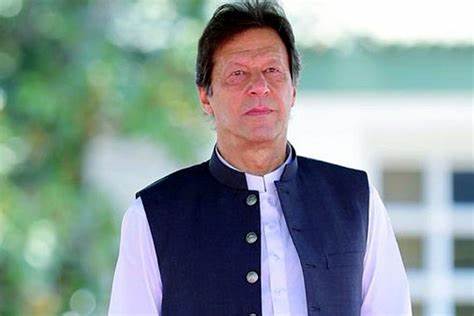Introduction
Imran Khan is a name that is synonymous with cricket in Pakistan. The legendary cricketer, who captained the Pakistan cricket team to their first-ever World Cup victory in 1992, is also known for his contributions towards philanthropy and social work. However, in recent years, Imran Khan has made headlines for his foray into politics and his subsequent election as the Prime Minister of Pakistan. This article will explore Imran Khan’s journey from a cricketing hero to a political leader.
Early Life and Cricket Career
Imran Khan was born on October 5, 1952, in Lahore, Pakistan. He belonged to an affluent family and received his early education at Aitchison College in Lahore. It was during his time at the college that Imran Khan developed a love for cricket. He later went on to study at Keble College, Oxford, where he continued to play cricket.
Imran Khan made his debut for the Pakistan cricket team in 1971 and quickly established himself as one of the best all-rounders in the world. He was known for his pace bowling and aggressive batting style. Imran Khan played a crucial role in the Pakistan cricket team’s victory at the 1992 World Cup, where he led the team as captain.
Philanthropy and Social Work
In addition to his cricketing achievements, Imran Khan is also known for his contributions towards philanthropy and social work. He established the Shaukat Khanum Memorial Cancer Hospital and Research Centre in Lahore in memory of his mother, who died of cancer. The hospital provides free treatment to cancer patients who cannot afford it.
Imran Khan also founded the Namal College in Mianwali, which provides higher education to students from rural areas of Pakistan. The college is affiliated with the University of Bradford in the UK and offers degree programs in engineering, computer science, and social sciences.
Entry into Politics
Imran Khan’s entry into politics came as a surprise to many. He founded the Pakistan Tehreek-e-Insaf (PTI) party in 1996, but the party struggled to gain significant support in its early years. Imran Khan was known for his anti-corruption stance and his criticism of the traditional political parties in Pakistan.
However, in the 2013 general elections, the PTI emerged as the second-largest party in the National Assembly. Imran Khan was elected as the member of the National Assembly from his home constituency of Mianwali. He later led a 126-day protest in Islamabad, demanding the resignation of the Prime Minister at the time, Nawaz Sharif, on corruption charges.
Election as Prime Minister
In the 2018 general elections, the PTI emerged as the largest party in the National Assembly. Imran Khan was elected as the Prime Minister of Pakistan, and he assumed office on August 18, 2018. His election as the Prime Minister was met with mixed reactions, with some hailing it as a new dawn for Pakistan while others remained skeptical of his ability to lead the country.
As the Prime Minister, Imran Khan has focused on improving Pakistan’s economy, reforming the education system, and tackling corruption. He has also been a vocal advocate for peace and stability in the region. Particularly in relation to the ongoing conflict in Afghanistan.
Conclution
sionImran Khan’s journey from a cricketing legend to a political leader is a testament to his tenacity and determination. Despite facing numerous challenges along the way, he has remained committed to his vision for a better Pakistan. As the Prime Minister, he has the opportunity to turn his vision into reality. And leave a lasting legacy for future generations.
